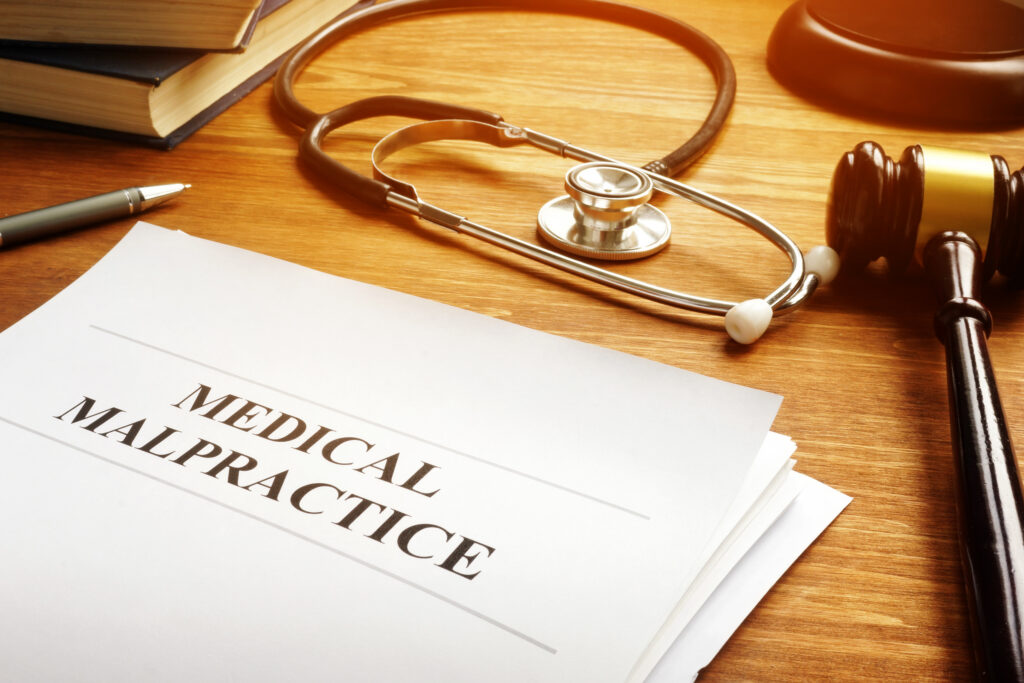When medical treatment doesn’t go as expected, patients and families often ask: was this an unavoidable outcome, or did something go wrong? In Pennsylvania, that question is legally answered by determining whether the provider met the standard of care.
This article explains what that standard means under Pennsylvania law, how courts apply it, how plaintiffs can prove it was breached, and why expert witnesses are often required. If you’re considering a malpractice claim or simply want to understand patient rights, this guide is for you.
What Is the Legal Standard of Care?
A Foundational Legal Concept
The standard of care is the level of care and skill that a reasonably competent medical professional would provide under similar circumstances. This is the baseline all providers must meet to avoid legal liability.
Not Perfection, But Reasonableness
Pennsylvania law does not expect doctors to be flawless. The legal test is whether the care delivered was reasonable, not whether the outcome was successful.
How Pennsylvania Defines the Standard of Care
No Single Statute
Unlike some areas of law, there’s no one-size-fits-all statute in Pennsylvania that defines the standard of care. Instead, it’s built through decades of case law, judicial precedent, and jury instructions.
Based on Peer Practice
The standard is typically defined by looking at what other similarly trained professionals would have done under the same circumstances. It’s a peer-comparison model, grounded in professional norms.
Real-Life Examples of the Standard of Care
1. Missed Diagnosis
A doctor who fails to diagnose a heart attack despite clear symptoms may fall below the standard of care—especially if other doctors would have ordered tests or treatment based on those same signs.
2. Medication Errors
If a nurse administers a drug without checking for allergies—something every trained professional would reasonably do—that’s likely a breach of the standard.
3. Inadequate Follow-Up
Failing to monitor a post-surgical patient for common complications might violate the standard of care if it contradicts accepted post-operative procedures.
What Is a Breach of the Standard of Care?
When the Line Is Crossed
A breach occurs when the care provided falls short of what a reasonably competent provider would have done. This doesn’t mean every mistake is malpractice, but rather that the provider deviated from professional norms.
Breach Requires More Than a Bad Outcome
Even if something goes wrong, a provider may still have met the standard of care. The law focuses on the decision-making process and conduct, not just the result.
Medical Errors vs. Malpractice
Not All Mistakes Equal Negligence
It’s important to understand that a medical error is not always a legal breach of duty. Doctors can make errors despite acting reasonably based on the information available.
When an Error Becomes Malpractice
A mistake becomes malpractice when it reflects carelessness, incompetence, or a disregard for accepted medical practices. That’s when a provider may be held legally liable.
Legal Elements Required to Prove Malpractice in PA
Five Key Elements
To win a malpractice claim in Pennsylvania, a plaintiff must prove:
- A provider-patient relationship existed.
- The provider owed a duty of care.
- That duty was breached.
- The breach caused an injury.
- The injury resulted in measurable damages.
Causation Is Critical
Even if the breach is clear, the plaintiff must prove that it directly caused harm. Without causation, the case will fail—even if the care was substandard.
How Courts Prove a Breach Occurred
The Role of Medical Records
Patient charts, diagnostic reports, surgical notes, prescriptions, and communication logs form the backbone of proof in malpractice litigation. These documents help courts evaluate whether the standard of care was followed.
Comparing to Professional Guidelines
Courts may also look at:
- Published medical guidelines
- Hospital protocols
- Clinical best practices
- Board certifications
These standards help define what a reasonable provider should have done.
Why You Need Expert Testimony
Pennsylvania Requires It
Pennsylvania law mandates that almost all malpractice cases must be supported by expert testimony. Without it, the case may be dismissed early in the process.
Experts Define the Standard
Medical experts:
- Explain what the standard of care is for the situation
- Describe how the defendant’s actions violated that standard
- Clarify the connection between the breach and the injury
Filing a Certificate of Merit
To even file a malpractice lawsuit, the plaintiff’s attorney must submit a certificate of merit, confirming that an expert has reviewed the case and believes a breach likely occurred.
Qualifications for Medical Expert Witnesses in PA
Legal Standards for Expert Witnesses
Under Pennsylvania law, a medical expert must:
- Be actively licensed in the U.S.
- Practice in the same or a substantially similar field
- Have recent clinical experience
- Not be purely an academic or professional witness
These requirements are in place to ensure that testimony is both relevant and credible.
How Juries Decide If a Breach Occurred
Jury Instructions Define the Standard
Judges give jurors specific instructions about how to evaluate medical negligence. Jurors must ask: Did the provider act as a reasonable professional would have under the same conditions?
Jurors Weigh Competing Experts
Jurors hear testimony from both the plaintiff’s and defendant’s experts. It’s their job to decide which version of the events is more credible and aligns with accepted standards.
What If the Patient Was Also at Fault?
Comparative Negligence in Pennsylvania
Pennsylvania applies modified comparative negligence. This means:
- If the patient is more than 50% at fault, they recover nothing.
- If the patient is 50% or less at fault, their compensation is reduced accordingly.
Real-World Impact
For example, if a patient fails to disclose a known allergy or skips a follow-up appointment, they may bear partial responsibility for the resulting harm.
The Clock Is Ticking: Statute of Limitations
Two-Year Filing Deadline
Pennsylvania law gives victims two years from the date they discovered—or should have discovered—the injury to file a lawsuit. Waiting too long can result in automatic dismissal.
Exceptions for Minors and Concealed Injuries
Special rules may apply if the injured party is a child or if the injury was fraudulently concealed, but generally, time is of the essence in malpractice cases.
Challenges Plaintiffs Often Face in PA Malpractice Cases
1. Missing or Incomplete Documentation
Without solid medical records, it’s difficult to prove what happened and whether the standard of care was followed.
2. Weak or Disqualified Experts
If an expert doesn’t meet Pennsylvania’s qualifications or lacks credibility, their testimony may be excluded—and the case may collapse.
3. Misunderstanding the Standard
Patients sometimes confuse a bad outcome with a breach of duty. Courts require evidence of negligence, not just dissatisfaction with care.
Why You Need a Malpractice Attorney
Navigating Complex Legal Territory
Medical malpractice law involves a blend of legal and clinical expertise. An experienced attorney will:
- Investigate the facts
- Secure qualified experts
- Handle complex filings
- Negotiate settlements or represent you in court
Maximize Your Chance of Success
With so much at stake—your health, finances, and future—professional legal representation can make the difference between winning compensation or walking away with nothing.
Frequently Asked Questions About Standard of Care in Pennsylvania Medical Malpractice
What is the “standard of care” in a Pennsylvania medical malpractice case?
The standard of care in Pennsylvania refers to the level of competence, skill, and caution that a reasonably trained healthcare provider would exercise under similar circumstances. This standard serves as a benchmark to determine whether a medical professional acted appropriately when treating a patient. Courts evaluate whether the provider’s actions were consistent with what their peers would have done in the same situation.
Does a bad outcome always mean the doctor was negligent?
No, a bad outcome does not automatically mean that a provider was negligent or that malpractice occurred. Medical treatments sometimes fail even when providers do everything correctly. In Pennsylvania, negligence only exists when the provider’s conduct falls below the professional standard of care, and that breach causes harm. The outcome must be tied to substandard medical treatment—not just an unsuccessful result.
Can I file a malpractice claim without an expert witness?
In almost all cases, no. Pennsylvania law requires plaintiffs to provide a certificate of merit, which confirms that a qualified medical expert has reviewed the case and believes there is a reasonable basis to pursue a malpractice claim. Expert testimony is necessary to define the standard of care and to show how the defendant deviated from it. Without expert support, the claim is unlikely to proceed in court.
How long do I have to file a malpractice lawsuit in Pennsylvania?
You generally have two years from the date you knew or should have known that an injury occurred and that it may have been caused by medical negligence. This is known as the statute of limitations. There are some exceptions, such as for minors or in cases involving fraud or concealment, but in most situations, acting quickly is essential to preserve your legal rights.
What kind of compensation can I recover in a malpractice case?
If your malpractice claim is successful, you may be entitled to compensation for a variety of damages. These can include medical expenses, lost wages, loss of future earning capacity, pain and suffering, emotional distress, and, in some cases, punitive damages. The exact amount depends on the nature and severity of the harm and the financial impact on your life.
Know Your Rights Under Pennsylvania Law
Medical malpractice claims in Pennsylvania depend on whether the provider met the standard of care—a benchmark based on what reasonable professionals would have done. If that standard wasn’t met and you were harmed as a result, you may have a strong legal claim.
But proving it requires more than frustration or pain—it requires evidence, expert support, and legal guidance.
Contact Purchase, George & Murphey, P.C. Today
If you suspect you or a loved one was injured due to negligent care, don’t delay. Contact Purchase, George & Murphey, P.C. today to evaluate your case.
We can help you understand your options, gather the necessary documentation, and fight for the compensation you deserve. With strict time limits and complex rules, getting early legal advice can protect your rights and position your case for success.














